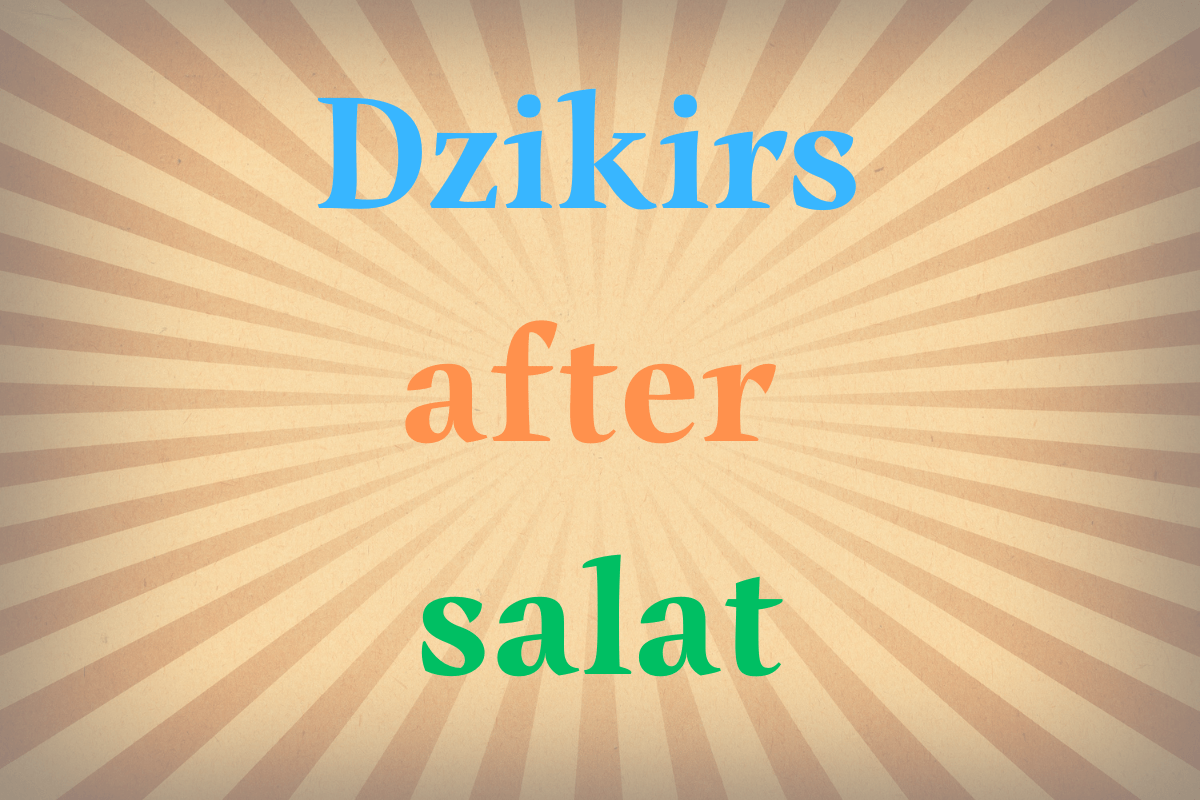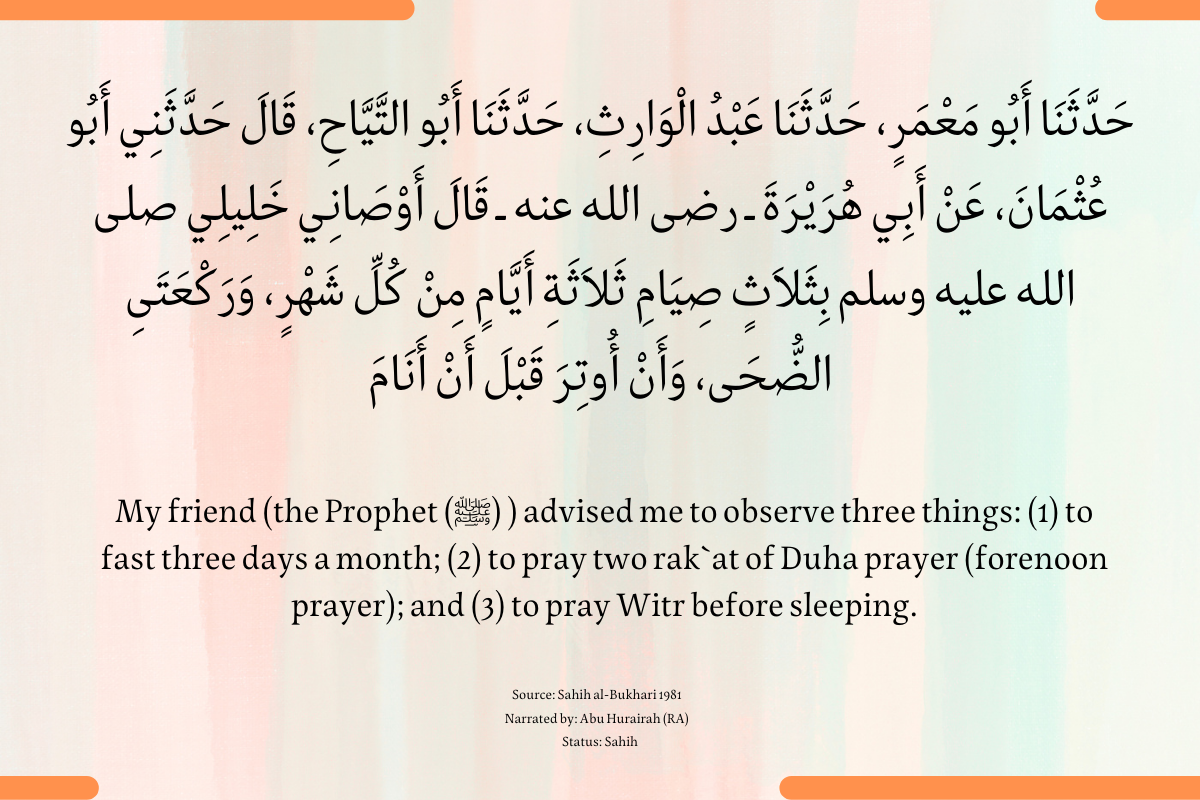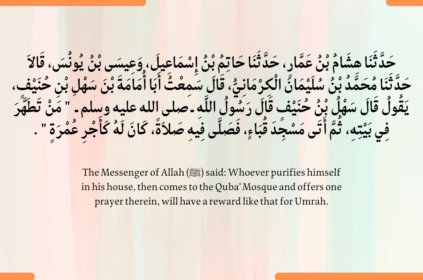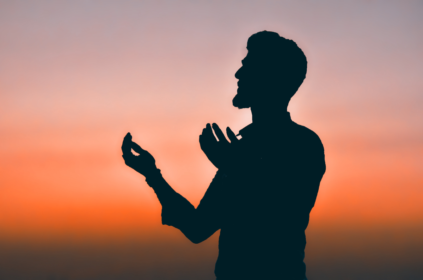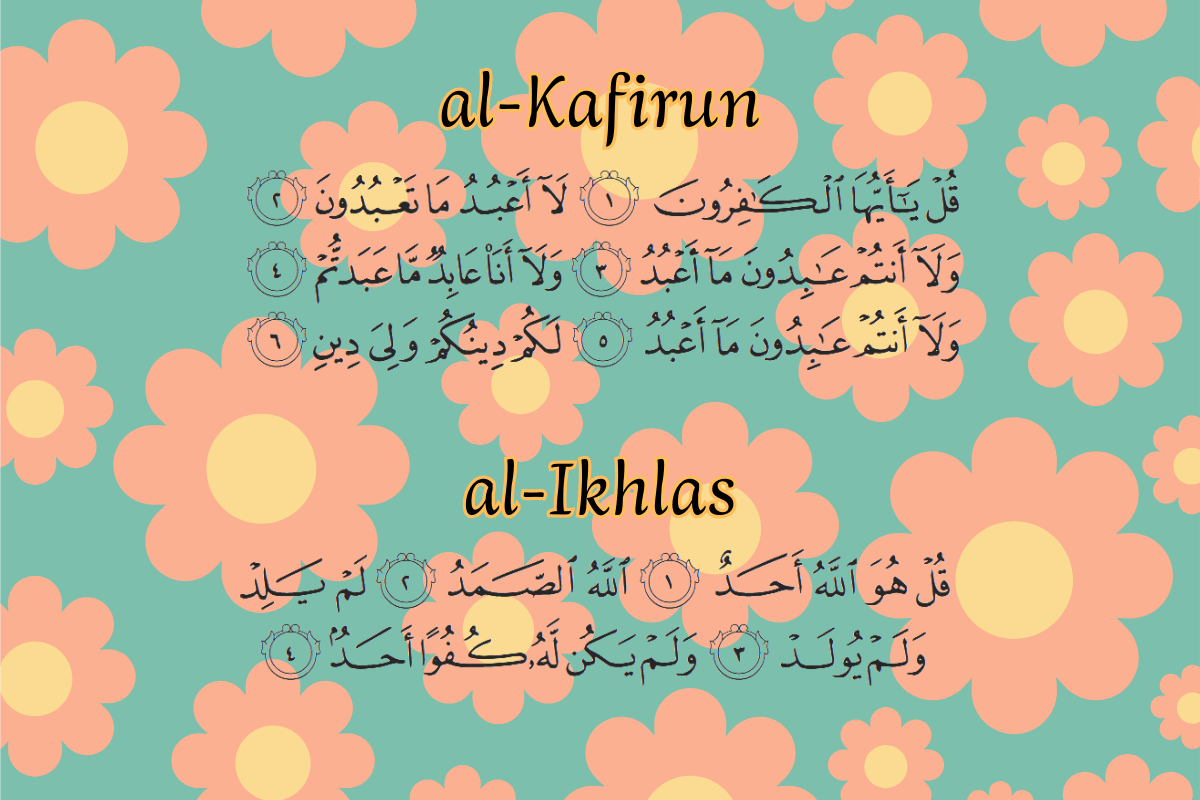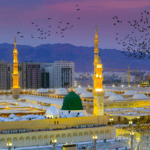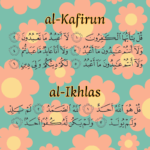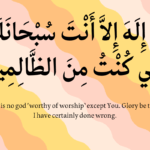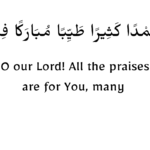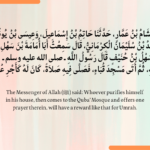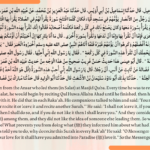بِسْمِ ٱللَّٰهِ ٱلرَّحْمَٰنِ ٱلرَّحِيمِ
The Prophet Muhammad (ﷺ) after completing his salat, would then continue to stay seated and exalt Allah S.W.T with dzikirs. Nowadays there are lots of dzikirs being recited after salat but in this article I would like to share dzikirs after salat according to hadiths.
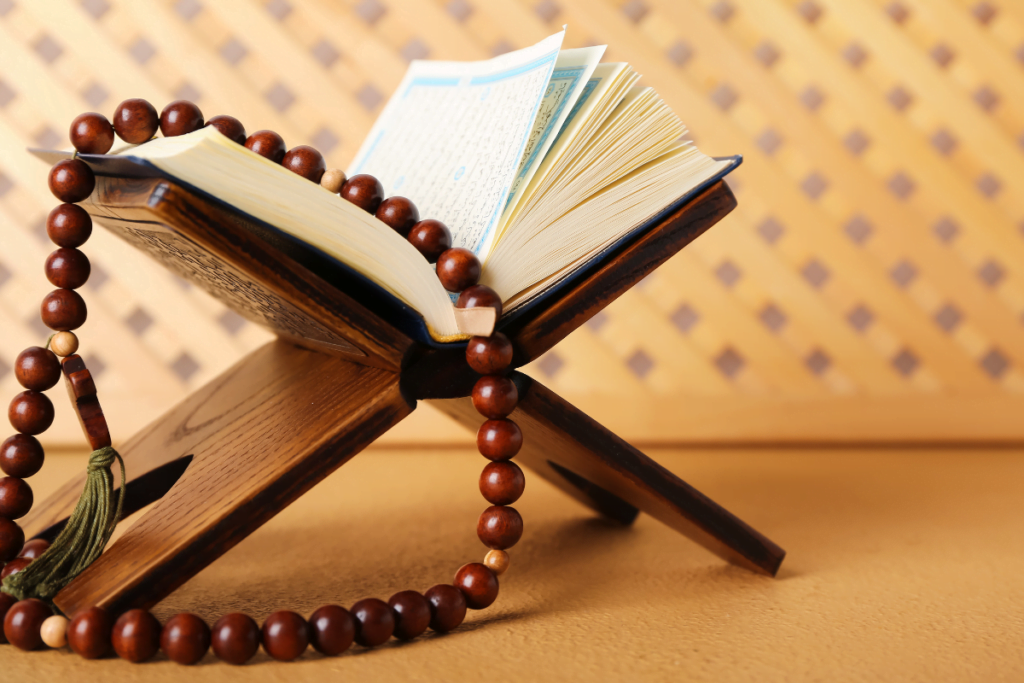
Hadiths regarding dzikirs after salat
وعن ثوبان رضي الله عنه قال: كان رسول الله صلى الله عليه وسلم إذا انصرف من صلاته ، استغفر الله ثلاثاً وقال: ”اللهم أنت السلام، ومنك السلام، تباركت يا ياذا الجلال والإكرام” قيل للأوزاعي- وهو أحد رواته: كيف الإستغفار؟ قال: يقول: ”أستغفر الله ، أستغفر الله” ((رواه مسلم)).
Whenever the Messenger of Allah (ﷺ) finished his Salat, he would beg forgiveness three times by saying, ‘Astaghfirullah’ and then he would say: “Allahumma Antas-Salamu, wa minkas-Salamu, tabarakta ya Dhal-Jalali wal-Ikram. .” Imam Al-Auza’i (one of the subnarrators) of this Hadith was asked: “How forgiveness should be sought?” He replied: “I say: Astaghfirullah, Astaghfirullah”.
Source: Riyad as-Salihin 1876
Narrated by: Thauban (RA)
وعن عبد الله ابن الزبير رضي الله عنهما أنه كان يقول دبر كل صلاة، حين يسلم: لا إله إلا الله وحده لا شريك له ، له الملك وله الحمد ، وهو على كل شيء قدير . لا حول ولا قوة إلا بالله ،لا إله إلا الله، ولا نعبد إلا إياه، له النعمة، وله الفضل وله الثناء الحسن. لا إله إلا الله مخلصين له الدين ولو كره الكافرون . قال ابن الزبير: وكان رسول الله صلى الله عليه وسلم، يهلل بهن دبر كل صلاة. ((رواه مسلم)).
It has been reported that ‘Abdullah bin Zubair (May Allah be pleased with them) used to recite after Taslim at the conclusion of every Salat (prayer): “La ilaha illallahu wahdahu la sharika lahu, lahul- mulku, wa lahul-hamdu, wa Huwa ‘ala kulli shai’in Qadir. La hawla wa la quwwata illa billah, La ilaha illallahu, wa la na’budu illa iyyahu, Lahun-ni’matu, wa lahul-fadlu, wa lahuth-thana’ul-hasan, La ilaha ilallahu, mukhlisina, lahud-dina, wa lau karihal-kafirun .” Ibn Az-Zubair said: The Messenger of Allah (ﷺ) used to celebrate Allah’s Greatness in those terms after every Salat (prayer). [Muslim].
Source: Riyad as-Salihin 1417
Narrated by: ‘Abdullah bin Zubair (RA)
حَدَّثَنَا مُحَمَّدُ بْنُ يُوسُفَ، قَالَ حَدَّثَنَا سُفْيَانُ، عَنْ عَبْدِ الْمَلِكِ بْنِ عُمَيْرٍ، عَنْ وَرَّادٍ، كَاتِبِ الْمُغِيرَةِ بْنِ شُعْبَةَ قَالَ أَمْلَى عَلَىَّ الْمُغِيرَةُ بْنُ شُعْبَةَ فِي كِتَابٍ إِلَى مُعَاوِيَةَ أَنَّ النَّبِيَّ صلى الله عليه وسلم كَانَ يَقُولُ فِي دُبُرِ كُلِّ صَلاَةٍ مَكْتُوبَةٍ “ لاَ إِلَهَ إِلاَّ اللَّهُ وَحْدَهُ لاَ شَرِيكَ لَهُ، لَهُ الْمُلْكُ، وَلَهُ الْحَمْدُ، وَهْوَ عَلَى كُلِّ شَىْءٍ قَدِيرٌ، اللَّهُمَّ لاَ مَانِعَ لِمَا أَعْطَيْتَ، وَلاَ مُعْطِيَ لِمَا مَنَعْتَ، وَلاَ يَنْفَعُ ذَا الْجَدِّ مِنْكَ الْجَدُّ ”. وَقَالَ شُعْبَةُ عَنْ عَبْدِ الْمَلِكِ بِهَذَا، وَعَنِ الْحَكَمِ عَنِ الْقَاسِمِ بْنِ مُخَيْمِرَةَ عَنْ وَرَّادٍ بِهَذَا. وَقَالَ الْحَسَنُ الْجَدُّ غِنًى.
Once Al-Mughira dictated to me in a letter addressed to Muawiya that the Prophet (ﷺ) used to say after every compulsory prayer, “La ilaha illa l-lahu wahdahu la sharika lahu, lahul-mulku wa lahul-hamdu, wa huwa ‘ala kulli shay’in qadir. Allahumma la mania lima ataita, wa la mutiya lima manata, wa la yanfa`u dhal-jaddi minkal-jadd.” And Al-Hasan said, “Al-jadd’ means prosperity.”
Source: Sahih al-Bukhari 844
Narrated by: Warrad (RA)
وعن معاذ رضي الله عنه أن رسول الله صلى الله عليه وسلم أخذ بيده وقال: ”يا معاذ والله إني لأحبك” فقال: ”أوصيك يا معاذ لا تدعن في دبر كل صلاة تقول: اللهم أعني على ذكرك، وشكرك، وحسن عبادتك”. رواه أبو داود بإسناد صحيح.
The Messenger of Allah (ﷺ) took hold of my hand and said, “O Mu’adh! By Allah I love you, so I advise you to never forget to recite after every prayer: “Allahumma a’inni ala dhikrika, wa shukrika, wa husni ‘ibadatika.”
Riyad as-Salihin 1422
Narrated by: Mu’adh bin Jabal (RA)
وَعَنْ أَبِي هُرَيْرَةَ - رضى الله عنه - عَنْ رَسُولِ اَللَّهِ - صلى الله عليه وسلم -قَالَ: { مَنْ سَبَّحَ اَللَّهَ دُبُرَ كُلِّ صَلَاةٍ ثَلَاثًا وَثَلَاثِينَ , وَحَمِدَ اَللَّهِ ثَلَاثًا وَثَلَاثِينَ , وَكَبَّرَ اَللَّهُ ثَلَاثًا وَثَلَاثِينَ , فَتِلْكَ تِسْعٌ وَتِسْعُونَ , وَقَالَ تَمَامَ اَلْمِائَةِ: لَا إِلَهَ إِلَّا اَللَّهُ وَحْدَهُ لَا شَرِيكَ لَهُ , لَهُ اَلْمُلْكُ , وَلَهُ اَلْحَمْدُ , وَهُوَ عَلَى كُلِّ شَيْءٍ قَدِيرٌ , غُفِرَتْ لَهُ خَطَايَاهُ , وَإِنْ كَانَتْ مِثْلَ زَبَدِ اَلْبَحْرِ } رَوَاهُ مُسْلِمٌ .
“Whoever glorifies Allah (by saying Subhan-Allah) after every Salat (prayer) thirty-three times. And praises Allah (by saying Alhamdu-lillah) thirty-three times, and exalts Allah (by saying Allahu Akbar) thirty-three times. Those are ninety-nine in all, and says to complete a hundred. La ilaha ill-Allahu, wahdahu la sharika lahu, lahul-mulku wa lahulhamdu, wa Huwa ‘ala kulli shai’in Qadir.
There is nothing which deserves to be worshiped except Allah Alone Who has no partner. To Him belongs the kingdom. To Him praise is due, and He has power over everything). His sins will be forgiven, even if they are as abundant as the foam of the sea.”
Source: Bulugh al-Maram 2/217
Narrated by: Abu Hurairah (RA)
وَعَنْ أَبِي أُمَامَةَ - رضى الله عنه - قَالَ: قَالَ رَسُولُ اَللَّهِ - صلى الله عليه وسلم -{ مَنْ قَرَأَ آيَةَ اَلْكُرْسِيِّ دُبُرَ كُلِّ صَلَاةٍ مَكْتُوبَةٍ لَمْ يَمْنَعْهُ مِنْ دُخُولِ اَلْجَنَّةِ إِلَّا اَلْمَوْتُ } رَوَاهُ النَّسَائِيُّ , وَصَحَّحَهُ اِبْنُ حِبَّانَ .
Narrated Abu Umamah (RA): Allah’s Messenger (ﷺ) said: “Whoever recites Ayatul Kursi at the end of every obligatory prayer, nothing but death will prevent him from entering Paradise.”
[An-Nasa’i reported it, and Ibn Hibban graded it Sahih (authentic).
Source: Bulugh al-Maram
Narrated by: Abu Umamah (RA)
حَدَّثَنَا مُحَمَّدُ بْنُ سَلَمَةَ الْمُرَادِيُّ، حَدَّثَنَا ابْنُ وَهْبٍ، عَنِ اللَّيْثِ بْنِ سَعْدٍ، أَنَّ حُنَيْنَ بْنَ أَبِي حَكِيمٍ، حَدَّثَهُ عَنْ عُلَىِّ بْنِ رَبَاحٍ اللَّخْمِيِّ، عَنْ عُقْبَةَ بْنِ عَامِرٍ، قَالَ أَمَرَنِي رَسُولُ اللَّهِ صلى الله عليه وسلم أَنْ أَقْرَأَ بِالْمُعَوِّذَاتِ دُبُرَ كُلِّ صَلاَةٍ .
The Messenger of Allah (ﷺ) commanded me to recite Mu’awwidhatan (the last two surahs of the Qur’an) after every prayer.
Sunan Abi Dawud 1523
Narrated by: Uqbah ibn Amir (RA)
Summary of dzikirs after Salat to recite and its meanings
Based on the hadiths above, lets summarize and order the dzikirs after Salat as recommended by the Prophet Muhammad (ﷺ).
1. Recite the istighfar three times, Astaghfirullah, Astaghfirullah, Astaghfirullah.
I seek forgiveness from Allah.
أستغفر الله
أستغفر الله
أستغفر الله
2. Recite Allahumma Antas-Salamu, wa minkas-Salamu, tabarakta ya Dhal-Jalali wal-Ikram.
O Allah! You are the Bestower of security and security comes from You; Blessed are You. O Possessor of glory and honour.
اللهم أنت السلام، ومنك السلام، تباركت يا ياذا الجلال والإكرام
3. Recite La ilaha illallahu wahdahu la sharika lahu, lahul- mulku, wa lahul-hamdu, wa Huwa ‘ala kulli shai’in Qadir. La hawla wa la quwwata illa billah. La ilaha illallahu, wa la na’budu illa iyyahu, Lahun-ni’matu, wa lahul-fadlu, wa lahuth-thana’ul-hasan. La ilaha ilallahu, mukhlisina, lahud-dina, wa lau karihal-kafirun.
There is no true god except Allah; He is One. To Him belongs the dominion and to Him is all praise, and He is Powerful over all things. There is no power and might except with (the help of) Allah. There is no God but Allah and we worship none except Him, to Him belongs the bounty and to Him belongs the grace, and to Him belongs all excellent praise; there is no deity but Allah. We reserve our devotion exclusively for Him though the disbelievers may detest it.
لا إله إلا الله وحده لا شريك له ، له الملك وله الحمد ، وهو على كل شيء قدير . لا حول ولا قوة إلا بالله ،لا إله إلا الله، ولا نعبد إلا إياه، له النعمة، وله الفضل وله الثناء الحسن. لا إله إلا الله مخلصين له الدين ولو كره الكافرون
4. Recite La ilaha illa l-lahu wahdahu la sharika lahu, lahul-mulku wa lahul-hamdu, wa huwa ‘ala kulli shay’in qadir. Allahumma la mania lima ataita, wa la mutiya lima manata, wa la yanfa`u dhal-jaddi minkal-jadd.
There is no Deity but Allah, Alone, no Partner to Him. His is the Kingdom and all praise, and Omnipotent is he. O Allah! Nobody can hold back what you gave, nobody can give what You held back, and no struggler’s effort can benefit against You.
لاَ إِلَهَ إِلاَّ اللَّهُ وَحْدَهُ لاَ شَرِيكَ لَهُ، لَهُ الْمُلْكُ، وَلَهُ الْحَمْدُ، وَهْوَ عَلَى كُلِّ شَىْءٍ قَدِيرٌ، اللَّهُمَّ لاَ مَانِعَ لِمَا أَعْطَيْتَ، وَلاَ مُعْطِيَ لِمَا مَنَعْتَ، وَلاَ يَنْفَعُ ذَا الْجَدِّ مِنْكَ الْجَدُّ
5. Recite Allahumma a’inni ala dhikrika, wa shukrika, wa husni ‘ibadatika.
O Allah, help me remember You, to be grateful to You, and to worship You in an excellent manner
اللهم أعني على ذكرك، وشكرك، وحسن عبادتك
6. Recite the Tasbih (Subhanallah), Tahmid (Alhamdulillah) and Takbir (Allahuakbar) thirty three times each and end it with La ilaha ill-Allahu, wahdahu la sharika lahu, lahul-mulku wa lahulhamdu, wa Huwa ‘ala kulli shai’in Qadir.
Glory to Allah. All praises to Allah. Allah is the greatest. There is no true god except Allah; He is One. To Him belongs the dominion and to Him is all praise, and He is Powerful over all things.
سَبَّحَ اَللَّهَ وَحَمِدَ اَللَّهِ وَ الله أكبر
لَا إِلَهَ إِلَّا اَللَّهُ وَحْدَهُ لَا شَرِيكَ لَهُ , لَهُ اَلْمُلْكُ , وَلَهُ اَلْحَمْدُ , وَهُوَ عَلَى كُلِّ شَيْءٍ قَدِيرٌ
7. Recite Ayatul Kursi.
8. Recite the Mu’awwidhatan which is surah al-Falaq and surah an-Nas.


Orders of the Dzikirs after Salat
To my knowledge there is no particular order to recite the dzikirs. It starts with the Istighfar and Allahumma Antas-Salamu, wa minkas-Salamu, tabarakta ya Dhal-Jalali wal-Ikram. After that it is up to your preferences.
Feel free to use the above order or make your own and surely Allah knows best for His servants.
Furthermore, you can choose to only recite a few of them or add towards the list if you want to.
Conclusion regarding the dzikirs after Salat
These are the authentic Hadiths that I found about dzikirs that the Prophet Muhammad (ﷺ) recites after Salat. If you find any other related Hadiths to this topic, feel free to inform me via the comments section.
I do hope that this article is beneficial to all who are searching for the dzikirs after Salat. May Allah ease your memorization and mine. Truthfully, I am still in the midst of learning the dzikirs myself.
As always, do share this article about dzikirs after Salat to all of your family and friends. I make Dua that may Allah make us steadfast in doing the dzikirs. May it be one of the long lasting good deeds that rewards us well. Here and in the hereafter, InsyaAllah.
